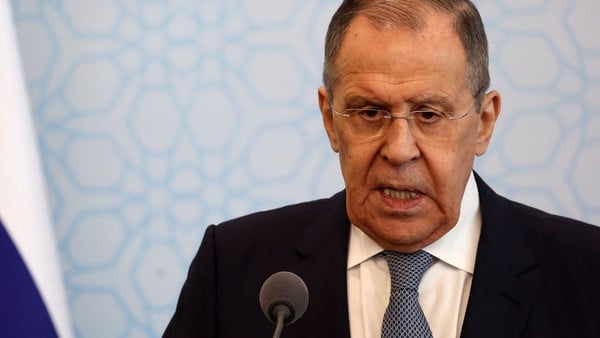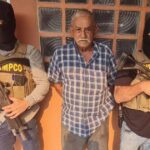Global Courant 2023-04-17 18:03:16
After Lula da Silva’s visit to China last week, where he was swept up on the red carpet by Xi Jinping, Brazil is following the path of strengthening ties with Washington’s enemies. This Monday he will receive the Russian Foreign Minister, Serguei Lavrov. Putin’s foreign minister will also travel to Venezuela, Nicaragua and Cuba, his closest allies in Latin America.
The tour will begin this Monday in Brazil and will last until the 21st, his department confirmed in a statement.
“For us, Latin America is a friendly region, one of the training centers of the multipolar world, with which Russia seeks to maintain a dynamic dialogue and develop constructive cooperation free of any foreign imposition,” stressed the Foreign Affairs spokeswoman, María Zajárova. .
The head of Russian diplomacy will have an “intense” program during his visit to the four Latin American countries. Photo: Maxim Shipenkov/ AFP
The head of Russian diplomacy will have an “intense” program during his visit to the four Latin American countries, which includes meetings with the leaders of the four countries and negotiations with their counterparts, Foreign Affairs said.
A concrete agenda
Lavrov travels to the region with a specific agenda aimed at increasing mutually beneficial cooperation between Russia and Brazil and the dictatorships of Venezuela, Nicaragua and Cuba in politics, trade and economy, education, culture, Humanities and other fields, he explained.
In addition, Russia plans to focus the negotiations on strengthening the international law of the modern world based on the UN Charter, Moscow stressed.
Last Thursday, Lavrov wrote two articles in the Brazilian newspaper “Folha de Sao Paulo” and the Mexican magazine “Divers of the News” ahead of his visit to Latin America.
In those articles, he highlighted, in particular, the strategic relationship with Brasilia, Caracas, Havana and Managua.
“The rapidly changing geopolitical landscape opens up new possibilities for the development of mutually beneficial cooperation between Russia and Latin American countries. The latter play an increasingly prominent role in the multipolar world,” he stressed.
Lavorvo highlights the strategic relationship with Brasilia, Caracas, Havana and Managua. Photo: Reuters
Lavrov assures that Moscow does not want Latin America and the Caribbean to become a space of antagonism between the powers, since it bases its foreign policy not on ideology, as was the case with the Soviet Union, but on pragmatism.
As an example, he highlighted that, despite the sanctions and political pressures, Russian exports to the region increased by 3.8%, while wheat supplies increased by 48.8%.
At the beginning of the month, Putin invited his Brazilian counterpart, Luiz Inácio Lula da Silva, to Moscow, when he received the special adviser for International Affairs of the Brazilian Presidency, Celso Amorim, in the Kremlin.
Lavrov’s visit to Brazil comes after Lula’s visit to China, where he once again advocated for peace in Ukraine.
The president of Venezuela, Nicolás Maduro, in turn offered Putin “full support” since the start of the Russian military campaign in Ukraine in February 2022.
For his part, Cuban President Miguel Díaz-Canel showed his support for Putin in his confrontation with the West, by visiting Russia in December 2022, after which he also condemned the arrest warrant issued against the head of the Kremlin by the Criminal Court International.
Finally, at the end of March, Nicaraguan Foreign Minister Denis Moncada met with Lavrov in Moscow, before whom he defended Moscow’s right to guarantee its “integrity and security.”
In the new Russian foreign policy, marked by the growing political, military and economic antagonism with the West over Ukraine, the Latin American region is one of the priority regions.
EFE
ap








